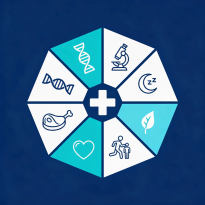Understanding Increased Sensitivity: Insights & Guidance
Have you ever wondered, “Why do I feel anxious and experience heart palpitations over minor issues?”
Or questioned, “Why am I getting irritated and angry over things I would have overlooked before?”
If someone else experienced the same situation, they might not have reacted with anger—so why do I?
If these thoughts cross your mind, it’s often not the event itself that is the issue, but rather your body being exhausted.
Analyzing Heart Palpitations: Psychological vs. Physical Factors
Heart palpitations and increased sensitivity often result from a combination of psychological and physical factors.
One way to determine which factor plays a greater role is to assess whether you have become more vulnerable to stress than before.
If you find yourself reacting excessively to events that are neither serious nor significant, your body might be fatigued, leading to increased emotional responses.
The Importance of Viewing Situations Objectively
One helpful approach is to try viewing your situation as if it were someone else’s. Detaching from personal emotions and analyzing the scenario objectively can help reduce heightened reactions.
Recognizing Physical Fatigue
Observing your own reactions and having people around who can notice signs of physical exhaustion can be beneficial.
If you experience persistent fatigue or heightened emotional responses, it is essential to take breaks. Prioritize rest on your days off, and if symptoms persist despite adequate rest, consider seeking professional help.
Strategies to Manage Sensitivity and Fatigue
1. Prioritize Rest and Recovery
-
Ensure you get enough sleep, aiming for at least 7-8 hours per night.
-
Engage in relaxing activities such as meditation, gentle yoga, or deep breathing exercises.
-
Take regular breaks throughout the day to prevent burnout.
2. Maintain a Balanced Diet
-
Nutrient deficiencies can exacerbate fatigue and emotional instability.
-
Incorporate whole foods rich in vitamins, minerals, and antioxidants.
-
Stay hydrated and reduce caffeine intake, which can contribute to anxiety.
3. Manage Stress Effectively
-
Identify stress triggers and develop coping mechanisms to address them.
-
Engage in activities that bring joy and relaxation, such as hobbies or socializing with supportive friends.
-
Consider professional therapy or counseling if stress and anxiety become overwhelming.
4. Stay Active
-
Regular physical activity helps in reducing stress and boosting energy levels.
-
Even light exercises, such as walking or stretching, can make a difference in overall well-being.
5. Set Boundaries and Prioritize Mental Health
-
Learn to say no to unnecessary commitments that drain your energy.
-
Practice mindfulness to stay present and avoid overthinking minor stressors.
-
Seek support from trusted friends, family, or mental health professionals.
When to Seek Professional Help
If your heightened sensitivity and fatigue persist despite lifestyle adjustments, consulting a healthcare provider is essential. Underlying health conditions such as anxiety disorders, hormonal imbalances, or chronic fatigue syndrome may require medical attention.
Understanding the connection between physical well-being and emotional resilience is key to maintaining balance in daily life. By implementing these strategies, you can restore your energy levels, improve your emotional responses, and enhance your overall quality of life.
When to Seek Professional Help
If your heightened sensitivity and fatigue persist despite lifestyle adjustments, consulting a healthcare provider is essential. Underlying health conditions such as anxiety disorders, hormonal imbalances, or chronic fatigue syndrome may require medical attention. Understanding the connection between physical well-being and emotional resilience is key to maintaining balance in daily life. By implementing these strategies, you can restore your energy levels, improve your emotional responses, and enhance your overall quality of life. For the original Korean text, visit here.
If you’re curious about the basics of traditional Korean medicine and health, read the following article:
What Your Sleeping Position Says About Your Health
Learn Why Studying JangSang Medicine is Important.
Frequently Asked but Silly Questions (Foods Good for the Liver??) Why Full, Thick Hair Is Considered Beautiful: The Fascinating Reasons Behind It (Hair Loss Story #1)

